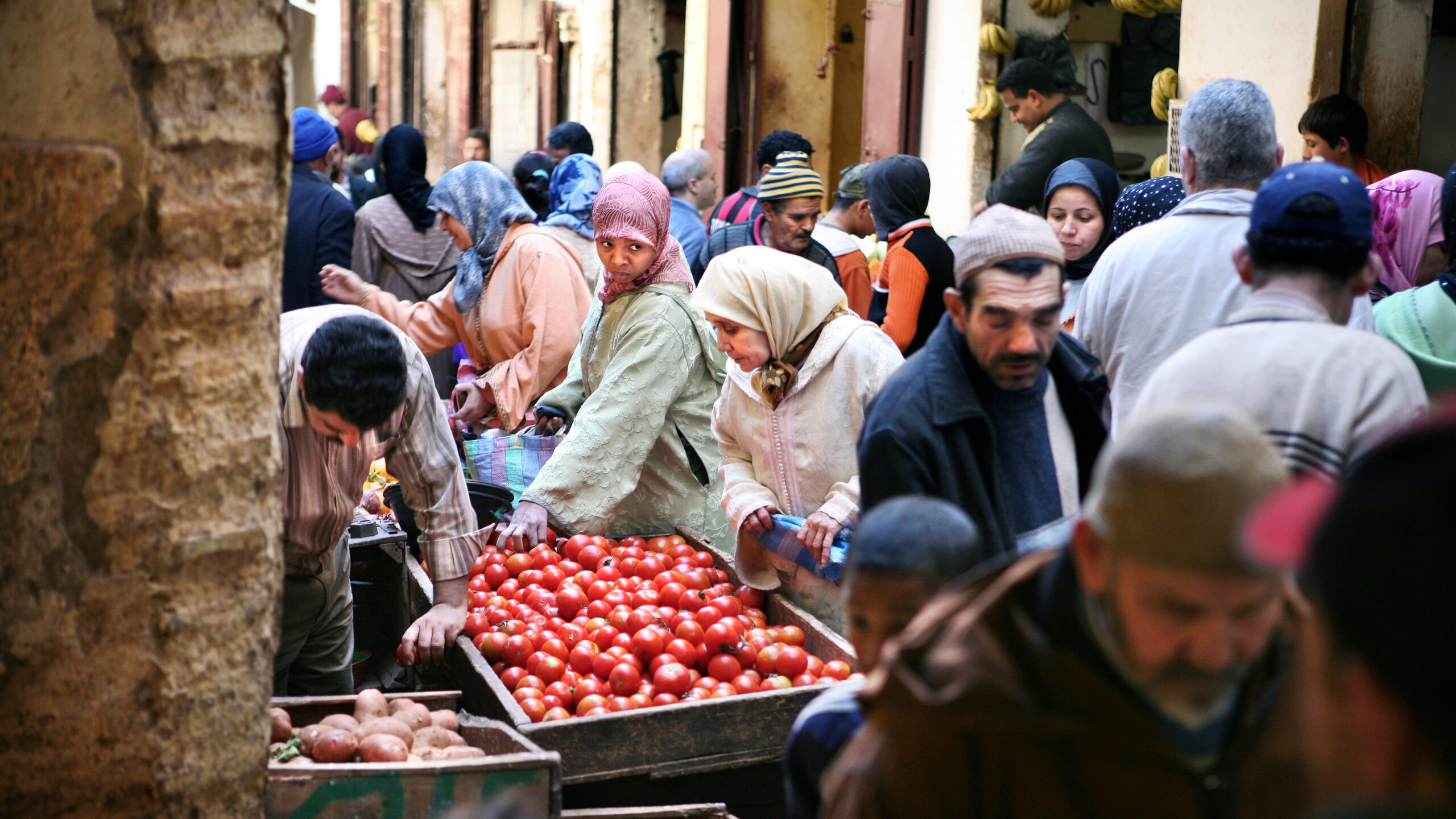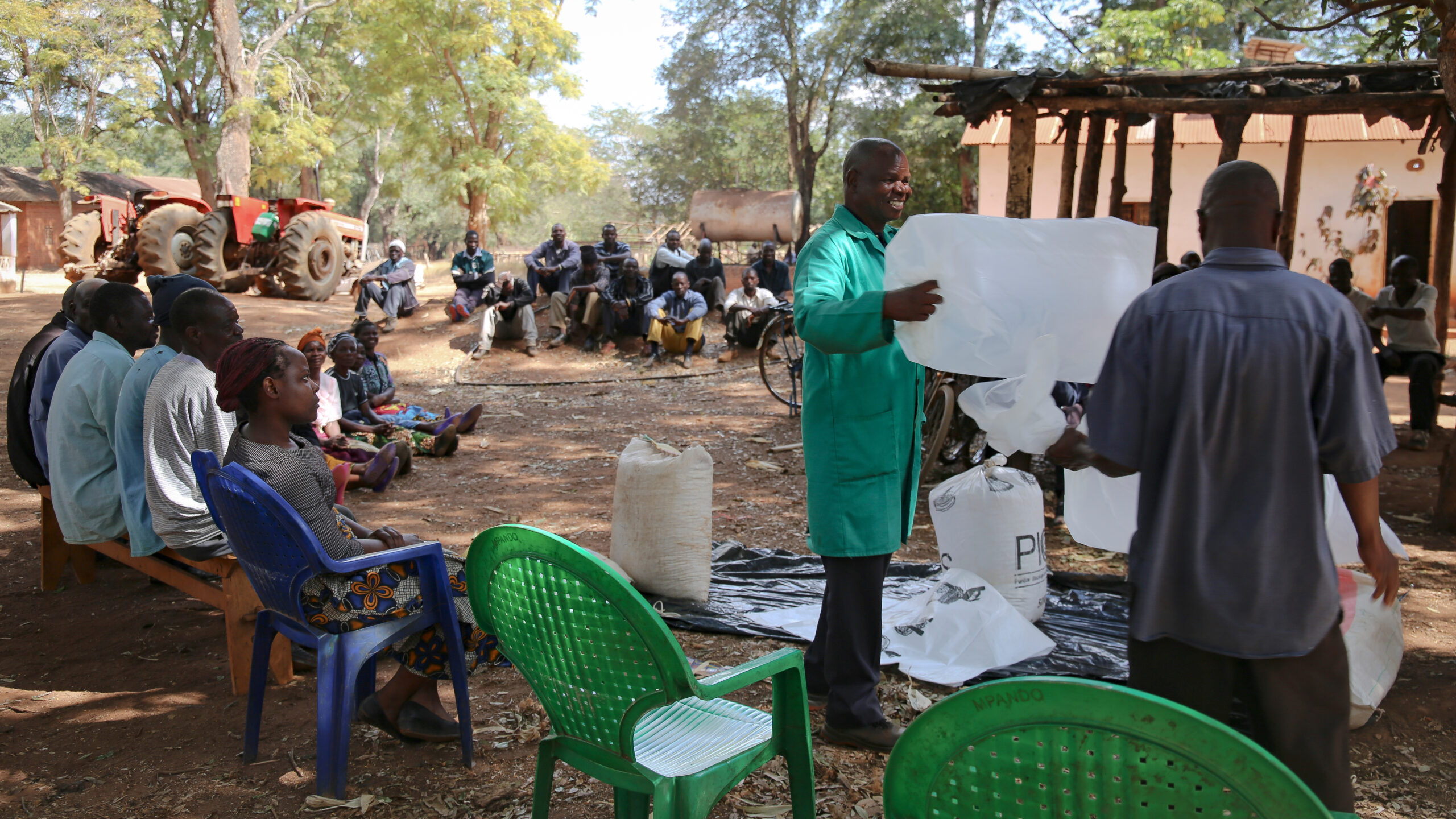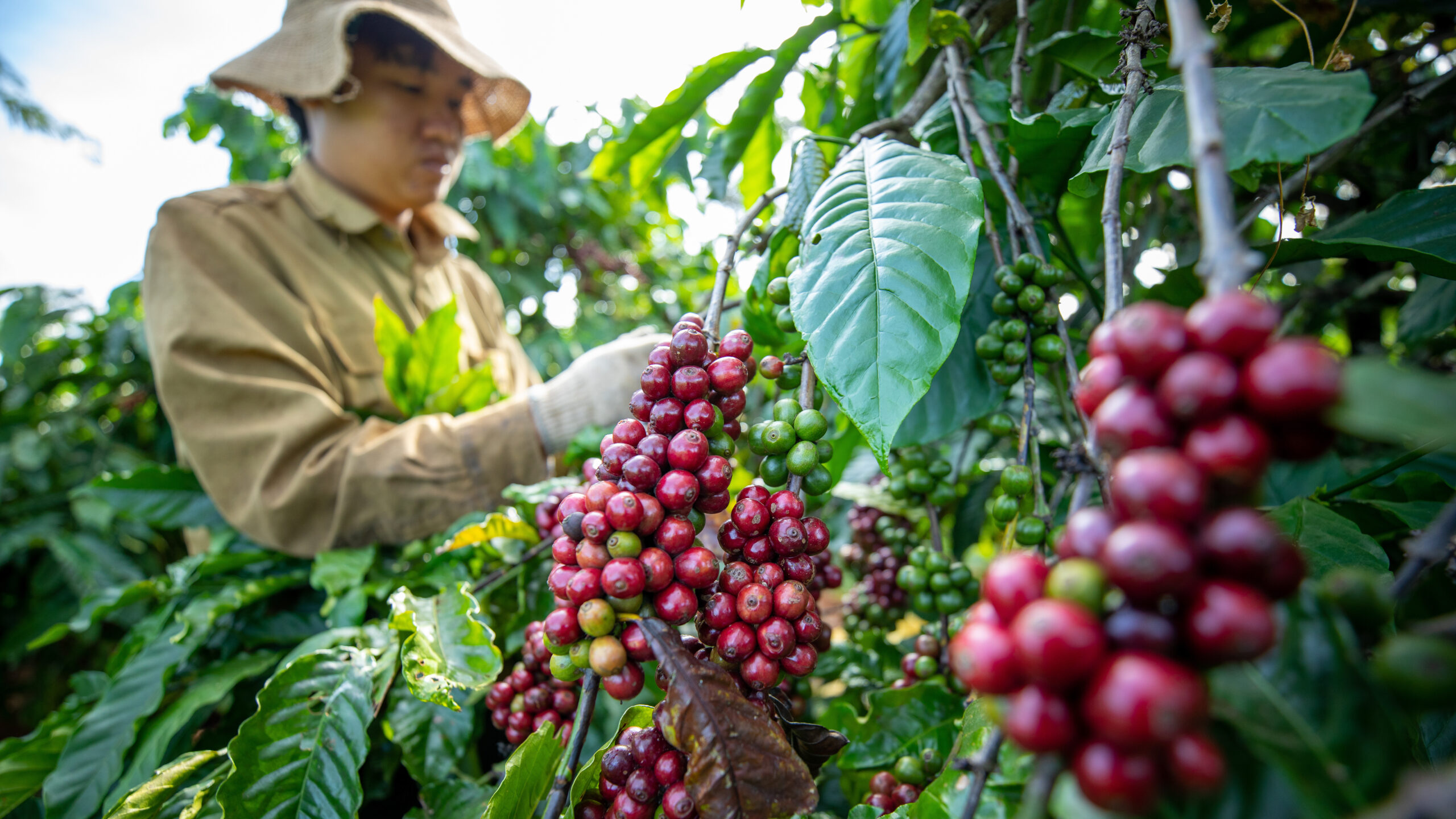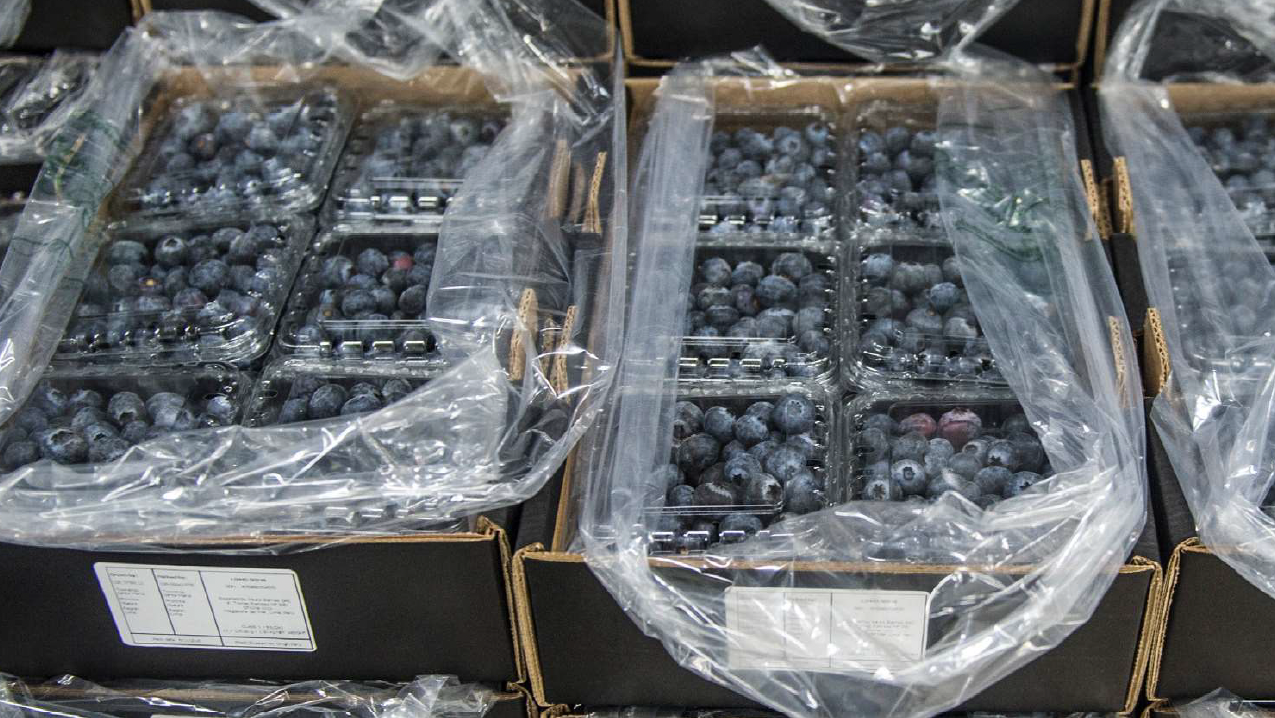Part of a series on key themes from IFPRI’s 2024 Global Food Policy Report. Read the other posts here, here, and here.
Plant-source foods are a central component of sustainable healthy diets that promote individual health and well-being, are accessible, affordable, safe, and equitable, and culturally acceptable, while causing limited environmental stresses.
The health benefits of balanced consumption of fruits, vegetables, roots and tubers, and nutrient-enriched and whole grain staples are well-established. These provide energy, protein, and health-promoting vitamins, minerals, phytochemicals, and dietary fiber. Expanding cultivation and consumption of these food crops—along with sustainable, nutritious animal-based foods—is essential to feeding an expanding global population in the 21st century.
Yet, as outlined in Chapter 6 of IFPRI’s 2024 Global Food Policy Report, many people living in low- and middle-income countries (LMICs) have limited to no year-round access to these high-quality, nutrient-dense crops. Expanding that access is a key global equity, health, and sustainability challenge that can be met with the right mix of policy approaches and investments.
Staple crops like maize, cassava, wheat, and rice are eaten daily in LMICs and around the world as the main source of dietary energy and help stave off hunger. These are inexpensive, relatively easy to grow, and eaten by all family members, including women and children who carry the largest burden of malnutrition globally. But while these foods provide an important base intake of a wide range of nutrients, they are not sufficiently dense in essential vitamins and minerals. This problem is compounded by excessive processing for longer shelf life or consumer appeal.
Factors including higher incomes, urbanization, health education, and access to global markets can help consumers diversify their diets by eating more fruits, vegetables, pulses, and other nutrient-dense crops. Yet the global availability of fruits and vegetables in particular remains too low. It’s estimated that no countries in sub-Saharan Africa and few countries in Asia and the Pacific will be able to supply the World Health Organization’s minimum recommended daily per capita intake of 400 grams of fruits and vegetables in 2050.
How can plant-based foods contribute more to sustainable healthy diets—now?
Amid these challenges, there are steps that can be taken now to increase consumption of nutritious plant-based foods around the world.
Nutritious crops are the fundamental currency of food systems. Given the right policy environment, readily accessible and proven technologies such as biofortification and certain post-harvest processing methods can be scaled up through national agricultural research systems, governments, and private sector partners—at no extra cost to consumers.
These complementary nutrition strategies leverage crops to add needed nutrients into the diets of even the poorest and most at-risk communities. Food crop technologies developed through CGIAR in collaboration with national agricultural research systems have been adopted on over 221 million hectares of land across LMICs.
Fortifying staple crops with added nutrients and enabling small- and medium-sized enterprises
Many countries have adopted mandatory large-scale fortification strategies to add vitamins and minerals cost-effectively to foods at industrial facilities, especially for maize flour, wheat flour, rice, oil, sugar, and salt—yet enforcement and compliance vary.
In many LMICs, processing is mostly handled by small and medium-sized enterprises (SMEs). Developing enabling environments to increase SME involvement in consistent and verifiable food fortification can enhance competition, leading to increases in the number, quality, and affordability of fortified foods accessible to marginalized populations, including smallholder farmers.
Biofortification is another important tool in these efforts. It improves diet quality by enhancing the micronutrient density of widely consumed staple food crops through plant breeding, modern biotechnology, or agronomic practices such as the proper application of fertilizers. Biofortified crops can be sustainably and readily integrated into existing cropping systems and programs that support healthy food systems. Increasing consumption of nutrient-enriched crops and foods is a highly cost-effective agricultural and public health intervention and among the highest value-for-money investments for economic development.
Promoting whole grains
Cereal grains constitute more than half of the caloric intake of vulnerable populations globally. But they often undergo large-scale industrial processing—stripping the grains of essential vitamins, minerals, fats, and fiber. Compared to refined flours, whole meal cereal flours offer substantially higher levels of nutrients and other health-promoting compounds. Shifting a significant portion of global grain consumption toward whole grain (whole meal) products using both supply- and demand-side approaches is a pivotal and achievable enhancement for diets and global food systems.
Filling gaps locally
Locally-produced and traded foods, wild edible species, and increased production and consumption of lesser-known and highly nutritious “orphan crops” (those https://www.ifpri.org/blog/realizing-potential-neglected-crops-latin-america/neglected or underused by communities as well as plant breeders and policymakers) can also be promoted to help fill nutritional gaps. These crops are typically not traded internationally but are important for local and regional food security (including mitigation of shocks such as storms, droughts, or economic disruptions). They are often produced or harvested by farm households exclusively for home consumption or informal trade and can contribute to year-round healthy diets and agrobiodiversity.
Sustainable healthy diets are one of the ultimate outcomes of food system transformation, along with economic growth, social equity, and environmental sustainability. In addition to the solutions mentioned above, the broad goals of prioritizing investments in crop diversity in combination with upgrades to urban market infrastructure and nutrition and hygiene education among farmers, value chain actors, and consumers can lead to increased accessibility, affordability, and appeal of safe and healthy diets.
Overall, a range of policies are needed to promote nutrient-rich crops alongside behavioral strategies that shift demand and increase the appeal of healthy and safe diets. These can help to create an enabling environment for bringing about these changes. This requires the support of governments and financial commitments from global and national organizations for scaling up crop-focused initiatives. The right mix of holistic and context-specific multisectoral interventions spanning agriculture, food, trade, and social protection, can help to expand the production and everyday consumption of nutritious plant-based foods.
Erick Boy is Chief Nutritionist at HarvestPlus, a program within IFPRI’s Innovation Policy and Scaling (IPS) Unit; Inge Brouwer is a Senior Research Fellow with IFPRI’s Nutrition, Diets, and Health (NDH) Unit; Jen Foley is Senior Program Manager and lead of knowledge translation for HarvestPlus; Natalia Palacios Rojas is Principal Scientist and cereal nutritional quality lead, International Maize and Wheat Improvement Center (CIMMYT), Mexico; Samuel Scott is an NDH Research Fellow; Victor Taleon is an IPS Research Fellow.







